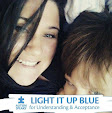Classical Religious Education
The Italian Mama
August 25, 2018
0 Comments
In the world of Catholicism there are divides, like in all the rest of Christianity. These divides range from dressing modestly versus choosing to dress any way society deems acceptable all the way over to the question of Papal validity among church goers (my readers can rest assured, I do not subscribe to Sedevacantism). Let's have a talk about CCD and what that means in a Catholic home, specifically in a homeschooling household.
First, I am a classical educator this means they will learn via classical books and the form of education the ancient Greeks used. A solid classical approach has heavy reading of age appropriate books. When the child is not at the level needed to read the books, read-alouds are the perfect option (this will work well for anyone with the desire to be very involved in their child's education). After the consideration of a classical approach to religious education classes, I consider my books and how I will do it on my own. This is a key point.
My children us Kolbe Academy for religion courses. This makes my life so much easier since I don't need to create my own lesson plans for each child. The plans are basically open and go. I did take a list of the books to my priest for assurance that what I was using was my best option. My oldest child is taking Theology, so you can see why this matters so much. We do cross-reference theological questions with the Council of Trent just to ensure nothing has "changed" and that the work is being done in the true teachings of the Catholic church. Once my plans are in place, I go get additional readers. This year I managed to get my hands on a ton of books from Catholic Book Publishing. These will be used as read alouds for saints and the mass.
We do religious studies daily. This can be anywhere from religious education to Bible History. Four days a week are spent on Religion and one day is spent on Bible History. A story for each saint is read aloud each day, and we celebrate feast days as the come. Speaking of, how do we handle feast days, and how do we choose. Oh my...
Well, each confirmed person in this house has their Confirmation Saint, those would be: St. Maria Goretti, St. Bernadette, and St. Philomena. Each of those days is celebrated in their honor. Then we celebrate the obvious feast days: Epiphany, Ash Wednesday, Holy Week (in general), Pentacost, Corpus Christi, the Assumption, St. Valentine, St. Patrick, St. Nicholas, and each year during Advent the children choose one saint each to work on and celebrate the following year. It really does become incorporated into our daily lives...and no one even notices.
My children us Kolbe Academy for religion courses. This makes my life so much easier since I don't need to create my own lesson plans for each child. The plans are basically open and go. I did take a list of the books to my priest for assurance that what I was using was my best option. My oldest child is taking Theology, so you can see why this matters so much. We do cross-reference theological questions with the Council of Trent just to ensure nothing has "changed" and that the work is being done in the true teachings of the Catholic church. Once my plans are in place, I go get additional readers. This year I managed to get my hands on a ton of books from Catholic Book Publishing. These will be used as read alouds for saints and the mass.
We do religious studies daily. This can be anywhere from religious education to Bible History. Four days a week are spent on Religion and one day is spent on Bible History. A story for each saint is read aloud each day, and we celebrate feast days as the come. Speaking of, how do we handle feast days, and how do we choose. Oh my...
Well, each confirmed person in this house has their Confirmation Saint, those would be: St. Maria Goretti, St. Bernadette, and St. Philomena. Each of those days is celebrated in their honor. Then we celebrate the obvious feast days: Epiphany, Ash Wednesday, Holy Week (in general), Pentacost, Corpus Christi, the Assumption, St. Valentine, St. Patrick, St. Nicholas, and each year during Advent the children choose one saint each to work on and celebrate the following year. It really does become incorporated into our daily lives...and no one even notices.











